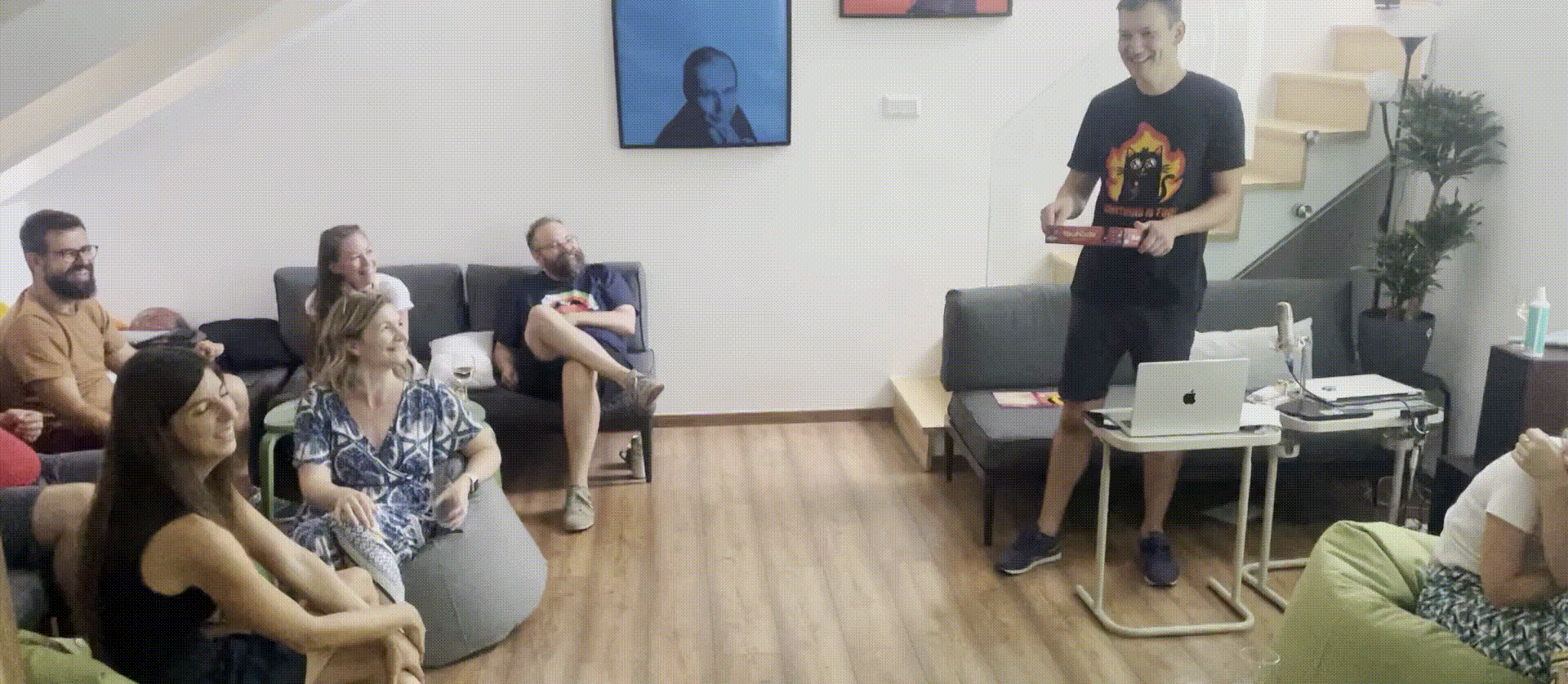
At a retreat at the beginning of the summer, we experienced areas where our preferred NVC did not bring the expected results; we had a limitation, so we decided to invite Judit Wirth to give us a workshop on hidden power relations and assertive communication.
After the last session, we talked to Judit about our experiences.
Wirth Judit: This is a new area; it's not usual to want to talk about power relations in companies.
IV: There is a trend in IT companies; they recognize that they perform better when they are democratic. As an outsider, have you noticed hierarchical relationships in the group?
WJ: Despite not seeing you in your natural everyday roles, gender-stereotypical behaviors were still evident. Women tended to be more reserved; senior male colleagues were more inclined to talk more, to ask questions. Of course, this may have something to do with positions in the company, senior-junior status, and so on, but it certainly has to do with male-female roles.
IV: How do you see that we have managed to keep the goal and focus we set? Or has the course changed?
WJ: During a couple of sessions, I got the impression that some of the group was more resistant to questions about male-female hierarchies than other power dynamics, so I deliberately pushed discussions about that back so as not to take away from the training altogether.
Of course, no matter how much we try to push it to the back, it keeps coming in, it is very closely linked to other power relations, and it is experienced so intensely by everyone that it cannot be treated casually. So much so that by the end, it became clear that some people thought it would be worthwhile to hold workshops specifically on the subject.
IV: What do you think that we started working on this in a group with mixed power and all kinds of perspectives?
WJ: It was an exciting experiment. It's essential to create safe group frames, and there are specific topics that are not worth working on in a mixed group. We have solved this by putting one big overarching theme in the background. Perhaps it can be done differently, but it is worth starting with a transparent approach: it is good to know from the beginning that gender hierarchies will be raised and that this can and should be explored to examine hidden power relations. It is my frequent experience that this turns out to be a more sensitive topic than others, which says a lot about how it is in society and how we live it in our daily lives.
IV: How do you think it's worth trying the techniques you've learned?
WJ: Maybe our goal is to change the system. It's always worth bearing in mind that if a problem is at a system level, it can't be solved at an individual level, but developing assertiveness is an area where you can experiment. It is worthwhile to acquire the mindset and skills to do this, especially if the environment has a stated receptivity. It may still be worth trying if this is lacking, but being assertive in a noticeable headwind is not easy, and there are situations where it is downright not worthwhile or unsafe.
You may give up on a situation in the first place - practicing assertiveness is precisely the way to determine whether that relinquishment is appropriate and stems from the problem or the other person. If our assertive communication reveals that our initial resignation was more out of habit, it will be reflected in the situation change.
If we are willing, it is worth practicing: since assertiveness is not aggressiveness, friends or clients can become "test subjects."
In many workplaces, people are afraid to try it because we grow up in a society where these hierarchies are a given, and they think it won't work anyway. They don't dare speak up, even if they see a problem, because they play the game in their head, and it turns out that there will be no takers, and they will get the short end of the stick. And of course, there is no guarantee that if the environment (co-workers, boss, family, etc.) finds assertive communication strange or downright hostile, they will take that fact alone as a wake-up call and start working on it.
IV: How can you recognize when dealing with an oppressive person?
WJ: It's not that difficult to distinguish between people prone to abuse and oppression and those who are not. The majority of people are the first to signal in some form if something is unpleasant, hurtful, or offensive to them. After a few such signals, it becomes clear whether or not the other person will change. If not, it is worthwhile to conclude that the person is clinging to their superiority, advantages, privileges, positioning, take this realization seriously, and decide on the next step accordingly.
IV: What might be the trigger that makes a company use the service you provide?
WJ: Let's see what the trigger was for you. A combination of many factors led to this. You started from a need for communication in which there was a stated goal that the parties would try to reach an agreement that was acceptable to all and that was good for the company.
You needed a person who could perceive that the agreement reached was not what it had become. It took a community to see that something could, and should, be done about it. And it took a commitment from everyone to put in the time, energy, and money. That's a lot of elements.
Dissatisfaction may be the trigger before it becomes apparent that all these elements are coming together. Discontent is always a warning sign that something more is needed. It is not necessarily a feeling specific to an individual; it may be dissatisfaction with a particular solution or outcome for a particular micro-environment, although it usually crystallizes over time into a particular person(s). It may not be just one person who feels this way, but it can be, and is, enough. If not necessarily for this training, it is undoubtedly a driving force. It is up to the community to decide what to do with this situation. Either to get the company to start improving and resolving the dissatisfaction, or to increase control, rules, undemocratic operations, or to ignore it and let those who don't like it go.
IV: Would you try the training you did with us in other companies?
WJ: Yes, I would love to.
Share with your friends!

